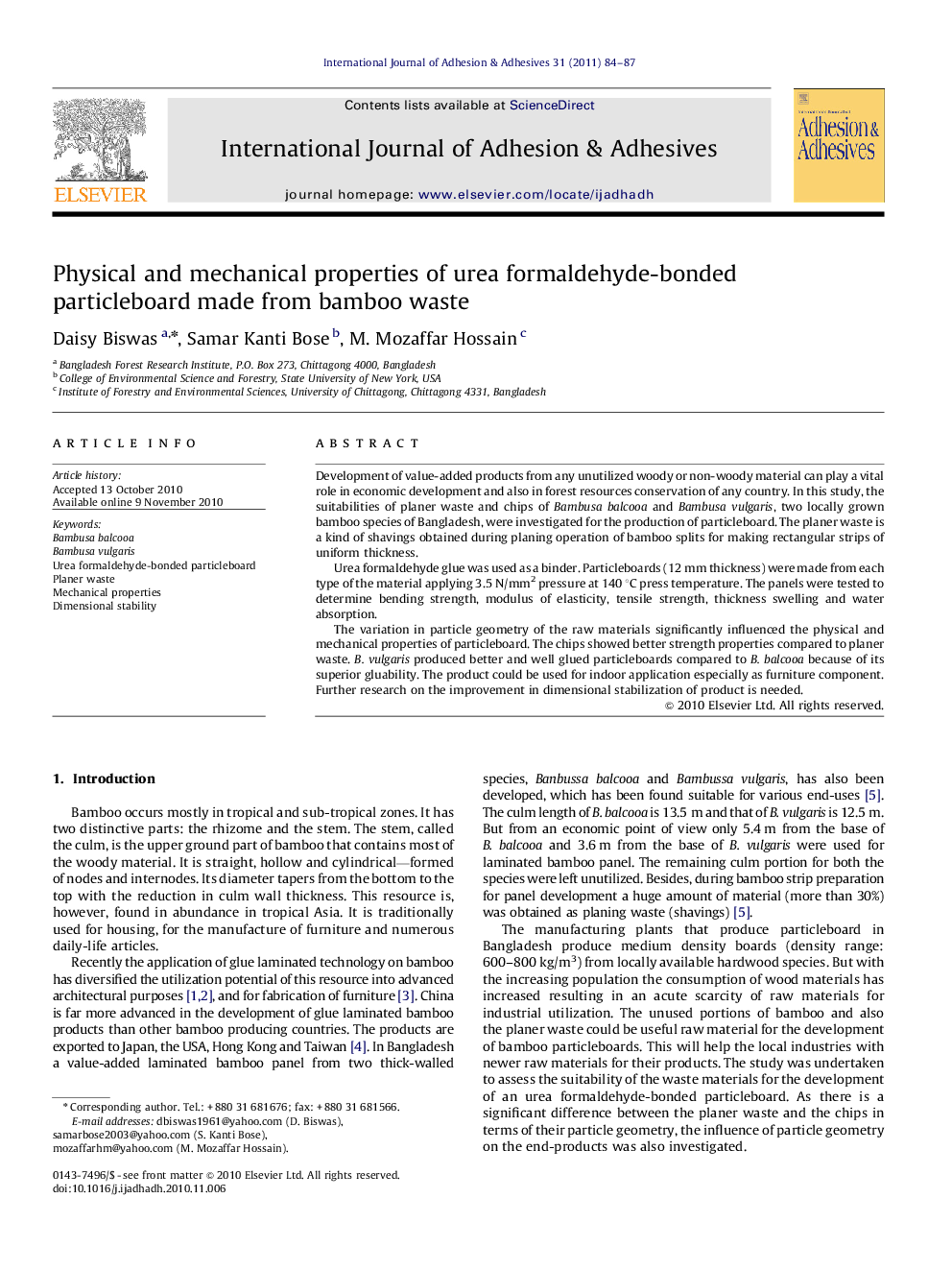| Article ID | Journal | Published Year | Pages | File Type |
|---|---|---|---|---|
| 776375 | International Journal of Adhesion and Adhesives | 2011 | 4 Pages |
Development of value-added products from any unutilized woody or non-woody material can play a vital role in economic development and also in forest resources conservation of any country. In this study, the suitabilities of planer waste and chips of Bambusa balcooa and Bambusa vulgaris, two locally grown bamboo species of Bangladesh, were investigated for the production of particleboard. The planer waste is a kind of shavings obtained during planing operation of bamboo splits for making rectangular strips of uniform thickness.Urea formaldehyde glue was used as a binder. Particleboards (12 mm thickness) were made from each type of the material applying 3.5 N/mm2 pressure at 140 °C press temperature. The panels were tested to determine bending strength, modulus of elasticity, tensile strength, thickness swelling and water absorption.The variation in particle geometry of the raw materials significantly influenced the physical and mechanical properties of particleboard. The chips showed better strength properties compared to planer waste. B. vulgaris produced better and well glued particleboards compared to B. balcooa because of its superior gluability. The product could be used for indoor application especially as furniture component. Further research on the improvement in dimensional stabilization of product is needed.
